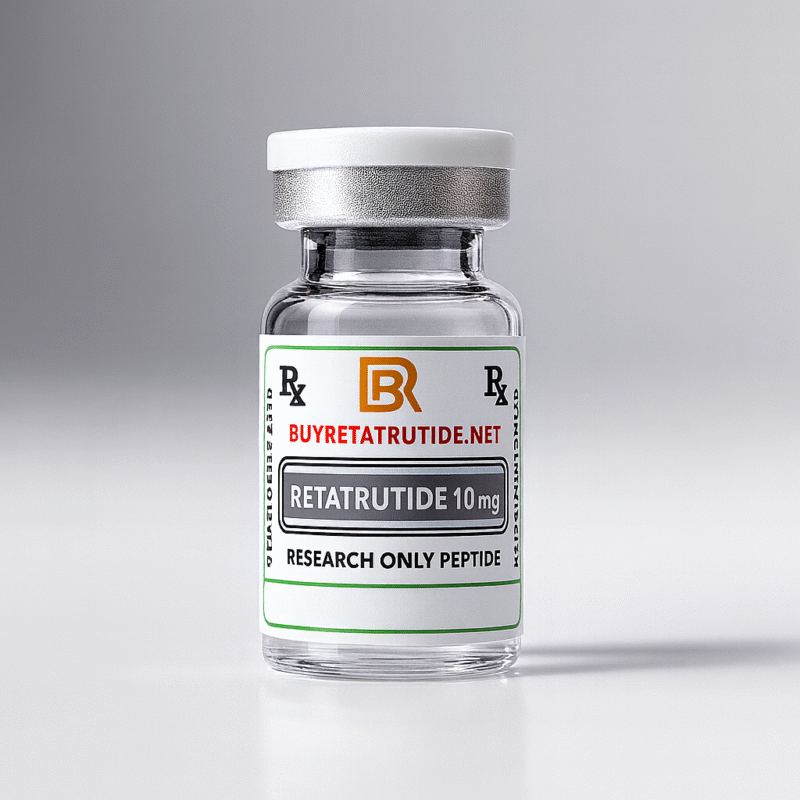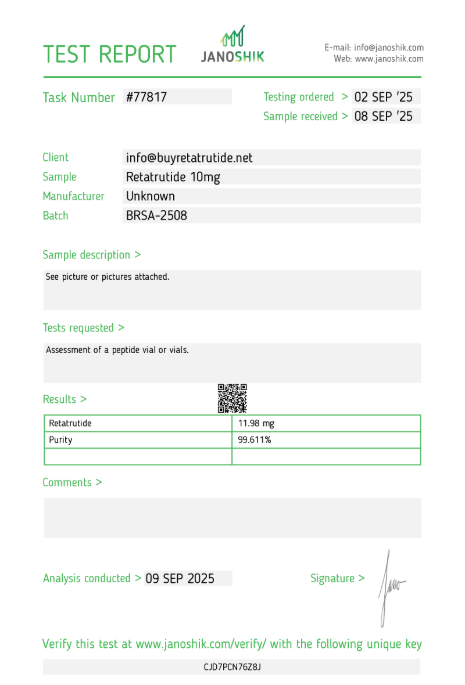Jump to:
Understanding Drug Interactions
Drug interactions occur when Retatrutide affects the action of other medications or when other medications alter Retatrutide’s effects. These interactions can increase or decrease drug effectiveness, alter side effect profiles, or create new safety concerns that require careful management.
Retatrutide’s triple hormone receptor agonist mechanism affects multiple physiological systems simultaneously, creating potential for various types of drug interactions. The medication’s effects on gastric emptying, glucose metabolism, and cardiovascular function can influence the absorption, distribution, and elimination of other medications.
Pharmacokinetic interactions involve changes in drug absorption, distribution, metabolism, or elimination. Pharmacodynamic interactions occur when medications have additive, synergistic, or opposing effects on the same physiological systems or target organs.
Understanding potential drug interactions helps healthcare providers make informed decisions about medication combinations and monitoring requirements. Patients should provide complete medication lists to their healthcare providers to ensure safe and effective treatment planning.
Regular review of medication regimens is essential to identify new interactions as patients’ treatment needs change. Healthcare providers should stay updated with the latest information about Retatrutide drug interactions and safety considerations.
Ready to Order?
Choose your preferred amount below, fast shipping and secure checkout.
-
Reta 10mg 3 Vials
£195.00Independently verified COA. UK stock, worldwide delivery. For lab use only.
Diabetes Medications
Retatrutide interacts with various diabetes medications, particularly insulin and sulfonylureas, due to its effects on glucose metabolism and insulin secretion. These interactions can significantly affect blood glucose control and increase risk of hypoglycaemia.
Insulin therapy requires careful adjustment when combined with Retatrutide due to potential additive effects on glucose lowering. Retatrutide’s GLP-1 and GIP receptor activation enhances insulin secretion, which may reduce insulin requirements and increase hypoglycaemia risk.
Sulfonylureas, including glibenclamide, glipizide, and gliclazide, interact with Retatrutide through additive effects on insulin secretion. This combination may significantly increase hypoglycaemia risk, particularly in elderly patients or those with renal impairment.
Metformin interactions with Retatrutide are generally considered safe, as both medications work through different mechanisms. However, Retatrutide’s effects on gastric emptying may influence metformin absorption and gastrointestinal side effects.
Patients taking diabetes medications with Retatrutide require careful blood glucose monitoring and potential dose adjustments. Healthcare providers should educate patients about hypoglycaemia symptoms and appropriate management strategies.
Cardiovascular Drugs
Retatrutide interacts with various cardiovascular medications, particularly those affecting blood pressure and heart rate, due to its effects on cardiovascular function and metabolic processes.
Antihypertensive medications, including ACE inhibitors, angiotensin receptor blockers, and beta-blockers, may interact with Retatrutide through additive effects on blood pressure reduction. Retatrutide’s effects on multiple hormone systems may enhance antihypertensive effects.
Diuretics, particularly thiazide and loop diuretics, may interact with Retatrutide through effects on electrolyte balance and fluid status. Retatrutide’s effects on metabolic function may influence electrolyte requirements and diuretic effectiveness.
Anticoagulants, including warfarin and direct oral anticoagulants, may interact with Retatrutide through effects on drug metabolism and elimination. Retatrutide’s effects on hepatic function may influence anticoagulant metabolism and effectiveness.
Patients taking cardiovascular medications with Retatrutide require careful monitoring of blood pressure, heart rate, and cardiovascular function. Healthcare providers should assess cardiovascular risk factors and adjust medications as needed.
Gastrointestinal Medications
Retatrutide interacts with various gastrointestinal medications due to its effects on gastric emptying and intestinal motility. These interactions can affect drug absorption and gastrointestinal symptom management.
Proton pump inhibitors and H2 receptor antagonists may interact with Retatrutide through effects on gastric pH and drug absorption. Retatrutide’s effects on gastric emptying may influence the effectiveness of acid-suppressing medications.
Antiemetic medications, including ondansetron and metoclopramide, may interact with Retatrutide through additive effects on gastrointestinal motility. These interactions may affect nausea management and gastrointestinal symptom control.
Laxatives and antidiarrheal medications may interact with Retatrutide through effects on intestinal motility. Retatrutide’s effects on GLP-1 receptors may influence gastrointestinal transit time and medication effectiveness.
Patients taking gastrointestinal medications with Retatrutide should be monitored for changes in gastrointestinal symptoms and medication effectiveness. Healthcare providers should adjust gastrointestinal medications as needed based on patient response.
Thyroid Hormones
Retatrutide interacts with thyroid hormone medications through effects on metabolic function and drug absorption. These interactions can affect thyroid hormone effectiveness and metabolic control.
Levothyroxine absorption may be affected by Retatrutide’s effects on gastric emptying and intestinal motility. Patients taking levothyroxine with Retatrutide may require dose adjustments and careful monitoring of thyroid function.
Thyroid hormone interactions with Retatrutide may affect metabolic rate, weight management, and overall treatment effectiveness. Healthcare providers should monitor thyroid function tests and adjust thyroid hormone doses as needed.
Patients with thyroid disorders taking Retatrutide require careful monitoring of thyroid function and metabolic status. Healthcare providers should coordinate care between endocrinology and weight management specialists.
Regular thyroid function testing is essential for patients taking thyroid hormones with Retatrutide to ensure optimal metabolic control and treatment effectiveness.
Anticoagulants
Retatrutide interacts with anticoagulant medications through effects on drug metabolism and elimination. These interactions can affect anticoagulant effectiveness and bleeding risk.
Warfarin interactions with Retatrutide may occur through effects on hepatic metabolism and protein binding. Retatrutide’s effects on metabolic function may influence warfarin metabolism and effectiveness.
Direct oral anticoagulants, including apixaban, rivaroxaban, and dabigatran, may interact with Retatrutide through effects on drug absorption and elimination. Retatrutide’s effects on gastric emptying may influence anticoagulant absorption.
Patients taking anticoagulants with Retatrutide require careful monitoring of coagulation parameters and bleeding risk. Healthcare providers should assess bleeding risk factors and adjust anticoagulant therapy as needed.
Regular monitoring of coagulation parameters is essential for patients taking anticoagulants with Retatrutide to ensure optimal anticoagulant effectiveness and safety.
Herbal Supplements
Retatrutide interacts with various herbal supplements and natural products through effects on drug metabolism, absorption, and physiological function. These interactions can affect treatment effectiveness and safety.
St. John’s wort interacts with Retatrutide through effects on drug metabolism and elimination. This herbal supplement induces hepatic enzymes that may increase Retatrutide metabolism and reduce effectiveness.
Ginkgo biloba may interact with Retatrutide through effects on blood glucose control and cardiovascular function. This herbal supplement may affect glucose metabolism and cardiovascular risk factors.
Green tea extract and other weight loss supplements may interact with Retatrutide through additive effects on metabolic function and weight management. These interactions may affect treatment effectiveness and safety.
Patients taking herbal supplements with Retatrutide should discuss these products with their healthcare providers. Healthcare providers should assess potential interactions and adjust treatment plans as needed.
Monitoring Guidelines
Effective monitoring for drug interactions requires a systematic approach that combines patient education, regular clinical assessment, and appropriate laboratory testing to detect early signs of interaction-related complications.
Patient education should focus on recognising symptoms of drug interactions and understanding the importance of medication adherence. Patients should be informed about potential interactions and when to seek medical attention.
Regular clinical assessment should include comprehensive evaluation of medication effectiveness, side effects, and potential interaction-related complications. Healthcare providers should maintain detailed medication records and review them regularly.
Laboratory monitoring should include appropriate tests to detect interaction-related changes in drug levels, organ function, and metabolic parameters. The frequency and scope of testing should be individualised based on patient risk factors and medication combinations.
Healthcare providers should maintain detailed records of patient medications, laboratory results, and treatment responses to facilitate early recognition of drug interactions and appropriate intervention when complications develop.
Order Retatrutide Online
Available in 10mg vials. Select your pack size and checkout securely below.
-
Reta 10mg 3 Vials
£195.00Independently verified COA. UK stock, worldwide delivery. For lab use only.
Frequently Asked Questions
- What medications interact with Retatrutide? Retatrutide interacts with diabetes medications, cardiovascular drugs, gastrointestinal medications, thyroid hormones, anticoagulants, and herbal supplements. Healthcare providers should review all medications before prescribing Retatrutide.
- Can I take insulin with Retatrutide? Insulin can be taken with Retatrutide but requires careful monitoring and potential dose adjustments. Retatrutide may reduce insulin requirements and increase hypoglycaemia risk.
- Do herbal supplements interact with Retatrutide? Some herbal supplements, including St. John’s wort and ginkgo biloba, may interact with Retatrutide. Patients should discuss all supplements with their healthcare provider.
- How do I know if I have a drug interaction? Signs of drug interactions include unexpected side effects, changes in medication effectiveness, or new symptoms. Patients should report any concerns to their healthcare provider immediately.
- Should I stop other medications when taking Retatrutide? Patients should not stop other medications without consulting their healthcare provider. Some medications may require dose adjustments or additional monitoring when taken with Retatrutide.
- How often should I be monitored for drug interactions? Monitoring frequency depends on the medications taken and patient risk factors. Healthcare providers will determine appropriate monitoring schedules based on individual patient needs.
- Can I take over-the-counter medications with Retatrutide? Some over-the-counter medications may interact with Retatrutide. Patients should discuss all medications, including over-the-counter products, with their healthcare provider.
- What should I do if I experience a drug interaction? Patients experiencing potential drug interactions should contact their healthcare provider immediately. Do not stop or change medications without medical supervision.

